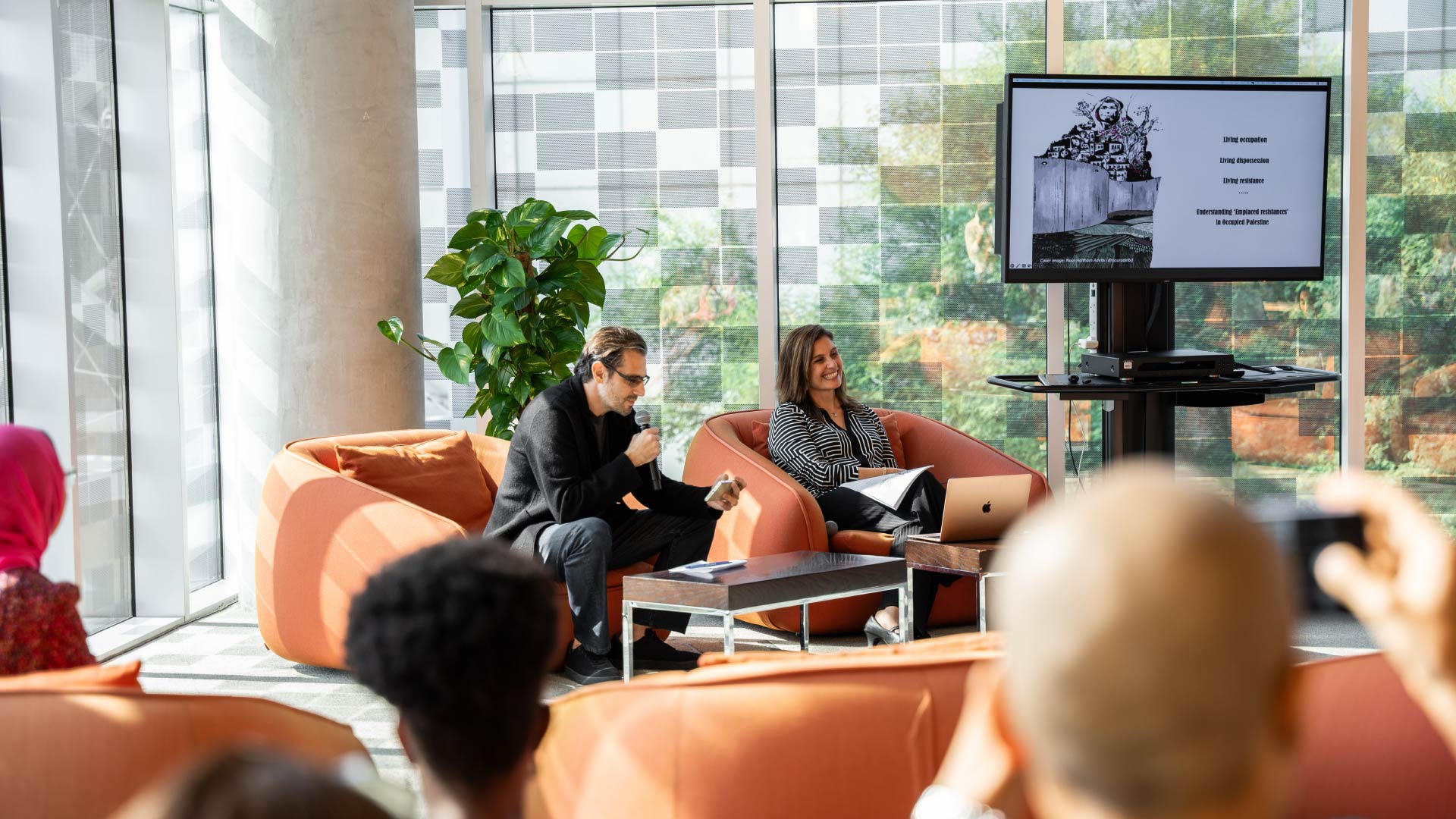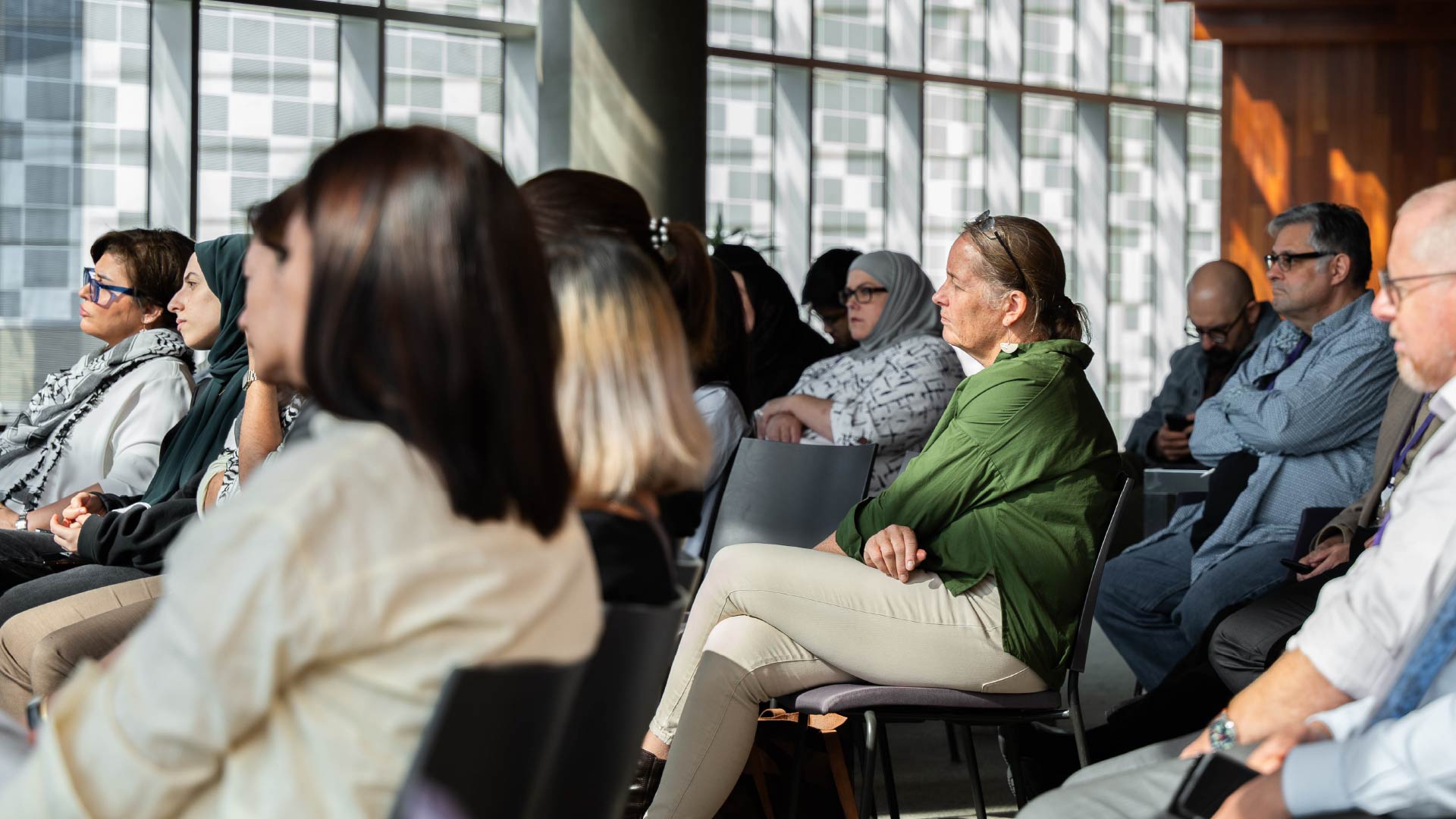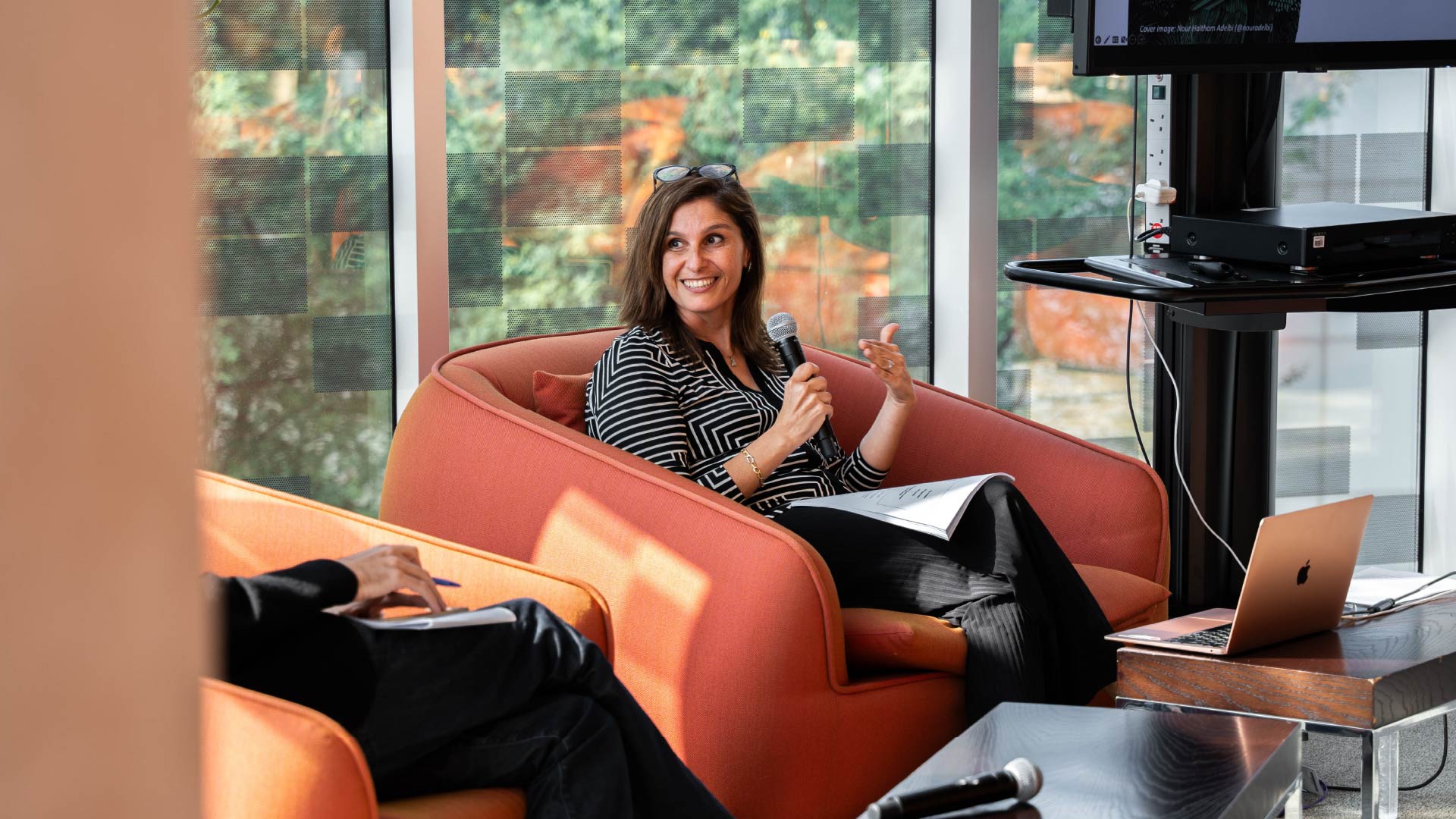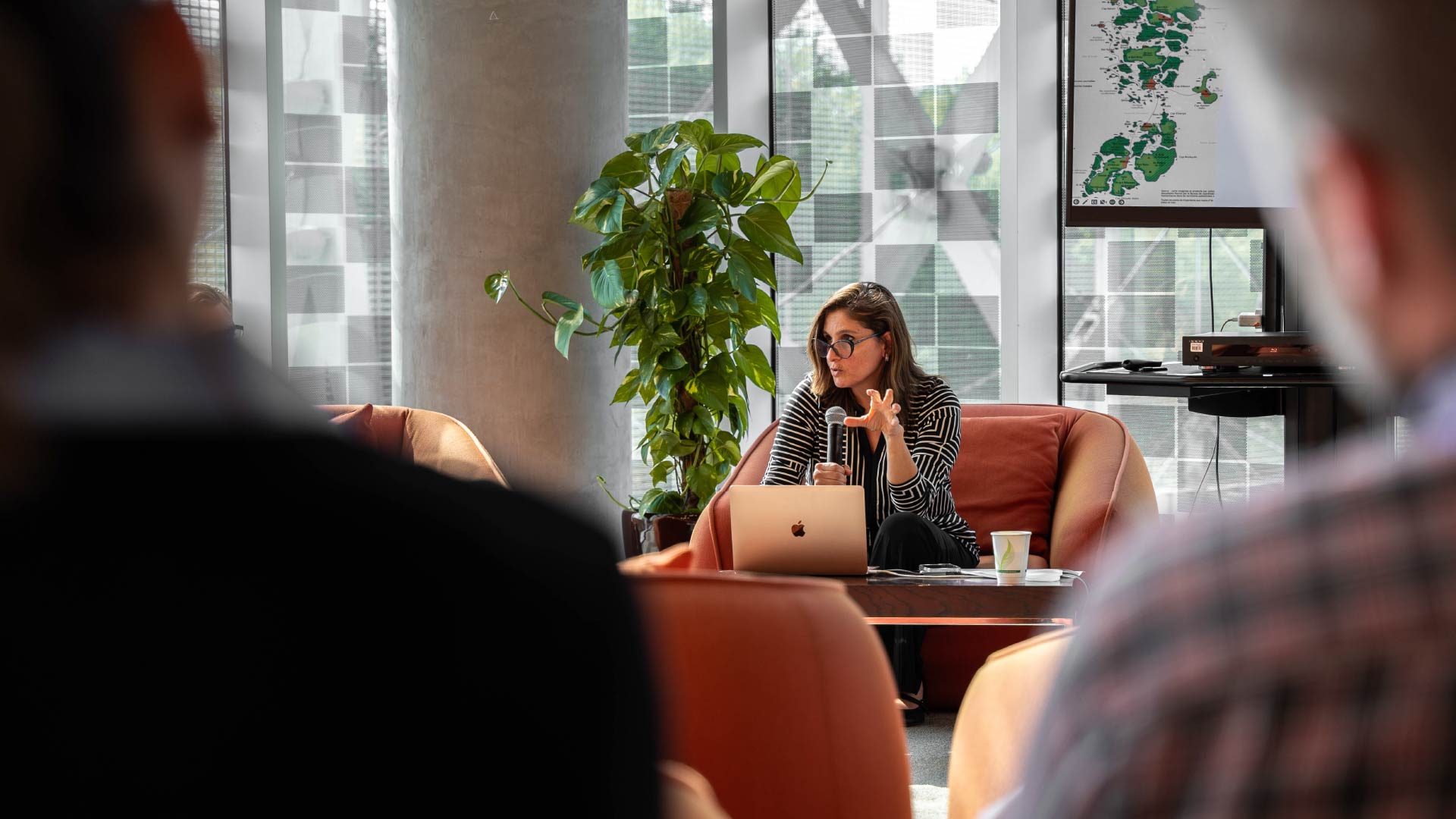Suzanne Hassan Hammad, author of Emplaced Resistance in Occupied Palestine: Stories of a Village, Its People, and Their Land, unpacked the intersection of place, meaning, and resistance in the everyday lives of Palestinians in the West Bank in her book debut at the latest Liberal Arts Speaker Series, hosted in collaboration with the Northwestern Qatar Library.
Hammad began the talk by discussing the Palestinian-Israeli conflict as part of Palestinians’ struggle over space, place, and history and the spectrum of ways that people resist in this context. “Palestinian popular resistance can only be understood as emplaced,” said Hammad. “It lies along a continuum rooted in one common understanding of place and is intentional and consistent about reclaiming space and place.”
In examining the place-rooted meanings of home to Palestinians in the occupied Palestinian West Bank landscape, Hammad drew from her book stories of residents of the Bil’in village, a divided Palestinian village in Ramallah known for its nonviolent protest against the separation wall cutting through its lived spaces. She explained how villagers’ resistance has been embodied within less visible practices of their everyday lives, from planting olives trees and harvesting olives to crossing the occupation checkpoints.
“Villagers' subjectivities of resistance—ranging from the public to private, personal or overtly political—were rooted in interpretations of place and its embodied meanings,” said Hammad. She went on to stress that, despite these resistance practices being less visible, “These must be acknowledged as equally potent not tangential… [they have] the power to transcend borders, generations and time.”
By capturing the nuances of the Palestinian resistance practices in Bil'in, Hammad said the understanding of popular resistance becomes connected to Palestinians' everyday lives and experiences. “Popular resistance is not monolithic or static given the continually changing Palestinian context,” said Hammad. “The less visible spectra of everyday practices of resistance have the power to transcend borders, generations, and time.”
Hammad is a sociologist, pracademic, research and evaluations consultant, and an adjunct lecturer at Northwestern Qatar, where she teaches courses on migration, displacement, and refugees in the Arab world.




